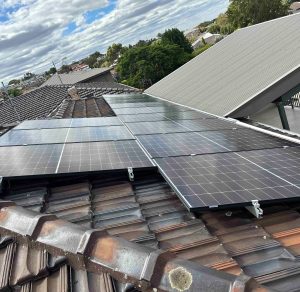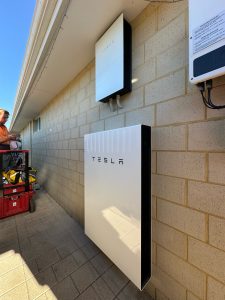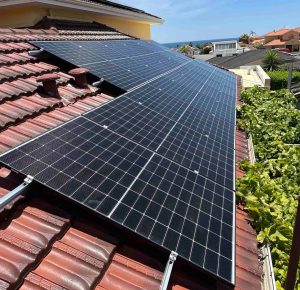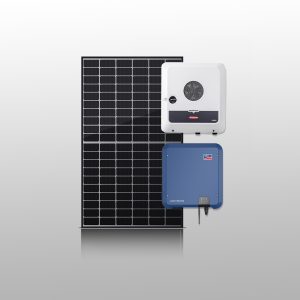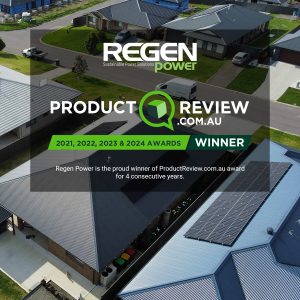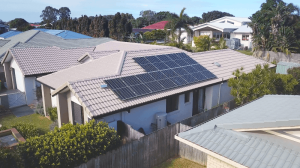The West Australian Government announced on 31 August 2020 that the existing Renewable Energy Buyback Scheme (REBS) will be replaced by the Distributed Energy Buyback Scheme (DEBS). It is available to eligible residential, not-for profit and education customers and offers a buyback rate for electricity exported back into the network, which appears on your bill as a credit. This reform,which is part of the Distributed Energy Roadmap, is designed to encourage households to self-consume the power generated by their solar PV system. It also aims to direct excess solar PV energy to the electricity network when required, which in turn helps stabilize the electricity network.
Customers currently in the process of installing a new system will receive REBS. You must apply to Synergy by 7 September 2020. Any applications submitted after this date will receive DEBS.
The key financial benefits of installing a grid connected solar PV system are:
- Reducing the amount of electricity, you need to draw from the electricity network. Currently the rate of electricity is 28.82c per kWh.
- Exporting power to the electricity network for a buyback rate, providing you with a credit on your electricity bill.
The table below summarises the existing and the new electricity export rates:
| REBS (applications received up until 7 September) | DEBS (applications received after 7 September) |
| 7.13c per kWh: exported to the electricity network at any time | 10c per kWh: exported to the electricity network between 3pm and 9pm 3c per kWh: exported to the electricity network before 3pm |
What is the impact on the return on investment (ROI) of a typical solar PV installation?
Savings from a solar system is determined by the ratio of:
- Power you consume (offsetting against 28.82c/kWh)
- Power you export (previously 7c, soon to be 3c/10c per kWh).
This ratio will differ depending on your household’s consumption habits, such as time of the day when people are at home, what devices you are using, and whether you have battery storage.
For a standard home with 6.6 kW of solar with no battery storage, assuming a ratio of 50% power consumed vs 50% sent to the electricity network, the annual difference in savings between the two schemes will be approximately:
- $2000 saved under REBS, the existing scheme
- $1,800 saved under DEBS, the new scheme.
Since the difference in ROI between REBS and DEBS is minimal, installing a PV system at home is a great investment. Naturally you will save more by managing your electricity usage by self-consuming as much energy as you can during the day.
Who are affected by these changes?
The changes will apply only to new solar customers, or anyone who upgrades to a new solar PV system. Those with a solar system already installed can remain on REBS if they prefer.
When do the changes come into effect?
DEBS will replace the existing Renewable Energy Buyback Scheme (REBS) for eligible new and upgraded systems. The final date for REBS applications to be submitted is 7 September 2020. DEBS will come into effect on 6 November 2020.
If your system is installed prior to this date, eligible DEBS customers will receive the REBS rate of 7.13c per kWh up until the 6 November to allow for technical upgrades.
From this date, other distributed energy systems such as household batteries and export-capable electric vehicles will be able to export stored energy to the electricity network.
What does this mean if you are looking at installing a solar system?
Regen Power will submit REBS applications to Synergy on behalf of our customers. Applications for REBS close on 7 September 2020, so if you are currently in the process of purchasing a solar system, we ask that you return your paperwork by 12 noon , Thursday 3 September so that we can lodge it in time.
Regen will submit applications for DEBS for new or upgraded systems from 8 September 2020.,
How beneficial is installing a solar system under the new scheme?
Grid connected Solar PV installation is still very beneficial. The main benefit is from having to avoid buying expensive electricity from the electricity network, currently 28.82c/kWh which may increase over time. The ratio between how much energy you consume, and how much you export back to the electricity network is the key to making the most of your system; the more you consume, the more you’ll save. The difference in savings between REBS and DEBS is minimal.
1 in 3 households in WA have a solar system installed, which creates a challenge for electricity network reliability. DEBS is launched to encourage:
- Behavior change by promoting self-consumption of the power generated by the solar system,
- Investment in batteries and electrical vehicles that increase the self-consumption of power generated by solar and/or exporting stored energy to the electricity network thereby earning 10c/kWh
How can you make the most of your solar PV system/battery?
To ensure you are getting the most out of your system, we recommend:
- Self-consuming as much of the energy your solar PV system generates as possible. Monitoring your consumption can help you keep track of your usage habits.
- Consider investing in a battery to store excess energy your system produces. You can then consume this when your solar system is not generating energy (during the night or on cloudy days).
- If possible install solar panels on the West facing roof to make the most of the evening DEBS buyback rate.


